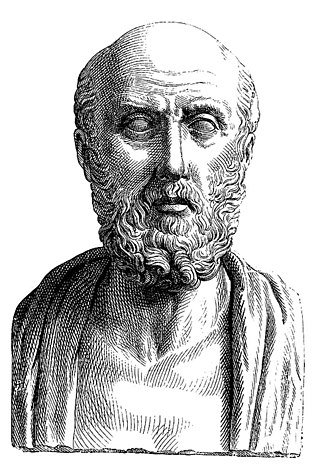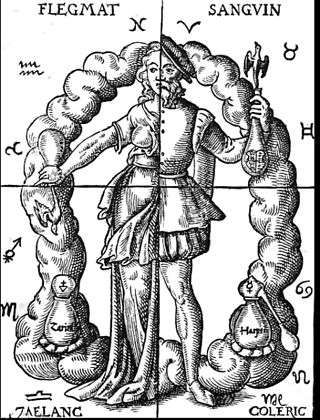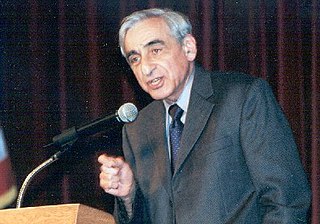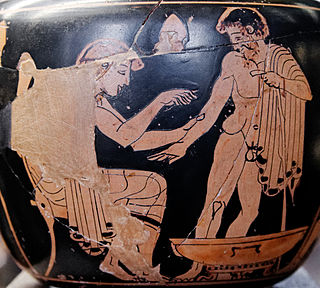Related Research Articles

Hippocrates of Kos, also known as Hippocrates II, was a Greek physician and philosopher of the classical period who is considered one of the most outstanding figures in the history of medicine. He is traditionally referred to as the "Father of Medicine" in recognition of his lasting contributions to the field, such as the use of prognosis and clinical observation, the systematic categorization of diseases, and the formulation of humoral theory. The Hippocratic school of medicine revolutionized ancient Greek medicine, establishing it as a discipline distinct from other fields with which it had traditionally been associated, thus establishing medicine as a profession.

The Hippocratic Oath is an oath of ethics historically taken by physicians. It is one of the most widely known of Greek medical texts. In its original form, it requires a new physician to swear, by a number of healing gods, to uphold specific ethical standards. The oath is the earliest expression of medical ethics in the Western world, establishing several principles of medical ethics which remain of paramount significance today. These include the principles of medical confidentiality and non-maleficence. As the foundational articulation of certain principles that continue to guide and inform medical practice, the ancient text is of more than historic and symbolic value. It is enshrined in the legal statutes of various jurisdictions, such that violations of the oath may carry criminal or other liability beyond the oath's symbolic nature.

Humorism, the humoral theory, or humoralism, was a system of medicine detailing a supposed makeup and workings of the human body, adopted by Ancient Greek and Roman physicians and philosophers.

The Hippocratic Corpus, or Hippocratic Collection, is a collection of around 60 early Ancient Greek medical works strongly associated with the physician Hippocrates and his teachings. The Hippocratic Corpus covers many diverse aspects of medicine, from Hippocrates' medical theories to what he devised to be ethical means of medical practice, to addressing various illnesses. Even though it is considered a singular corpus that represents Hippocratic medicine, they vary in content, age, style, methods, and views practiced; therefore, authorship is largely unknown. Hippocrates began Western society's development of medicine, through a delicate blending of the art of healing and scientific observations. What Hippocrates was sharing from within his collection of works was not only how to identify symptoms of disease and proper diagnostic practices, but more essentially, he was alluding to his personable form of art, "The art of true living and the art of fine medicine combined." The Hippocratic Corpus became the foundation upon which Western medical practice was built.

Michael Laban Walzer is an American political theorist and public intellectual. A professor emeritus at the Institute for Advanced Study (IAS) in Princeton, New Jersey, he is editor emeritus of the left-wing magazine Dissent, which he has been affiliated with since his years as an undergraduate at Brandeis University, an advisory editor of the Jewish journal Fathom, and sits on the editorial board of the Jewish Review of Books.

Helen King is a British classical scholar and advocate for the medical humanities. She is Professor Emerita of Classical Studies at the Open University. She was previously Professor of the History of Classical Medicine and Head of the Department of Classics at the University of Reading.

Ancient Greek medicine was a compilation of theories and practices that were constantly expanding through new ideologies and trials. The Greek term for medicine was iatrikē. Many components were considered in ancient Greek medicine, intertwining the spiritual with the physical. Specifically, the ancient Greeks believed health was affected by the humors, geographic location, social class, diet, trauma, beliefs, and mindset. Early on the ancient Greeks believed that illnesses were "divine punishments" and that healing was a "gift from the Gods". As trials continued wherein theories were tested against symptoms and results, the pure spiritual beliefs regarding "punishments" and "gifts" were replaced with a foundation based in the physical, i.e., cause and effect.

The Comitium was the original open-air public meeting space of Ancient Rome, and had major religious and prophetic significance. The name comes from the Latin word for "assembly". The Comitium location at the northwest corner of the Roman Forum was later lost in the city's growth and development, but was rediscovered and excavated by archaeologists at the turn of the twentieth century. Some of Rome's earliest monuments; including the speaking platform known as the Rostra, the Columna Maenia, the Graecostasis and the Tabula Valeria were part of or associated with the Comitium.

David M. Halperin is an American theorist in the fields of gender studies, queer theory, critical theory, material culture and visual culture. He is the cofounder of GLQ: A Journal of Lesbian and Gay Studies, and author of several books including Before Pastoral (1983) and One Hundred Years of Homosexuality (1990).
Sir Geoffrey Ernest Richard Lloyd, usually cited as G. E. R. Lloyd, is a historian of ancient science and medicine at the University of Cambridge. He is the senior scholar in residence at the Needham Research Institute in Cambridge, England.

Medicine in ancient Rome was highly influenced by ancient Greek medicine, but also developed new practices through knowledge of the Hippocratic Corpus combined with use of the treatment of diet, regimen, along with surgical procedures. This was most notably seen through the works of two of the prominent Greek physicians, Dioscorides and Galen, who practiced medicine and recorded their discoveries. This is contrary to two other physicians like Soranus of Ephesus and Asclepiades of Bithynia, who practiced medicine both in outside territories and in ancient Roman territory, subsequently. Dioscorides was a Roman army physician, Soranus was a representative for the Methodic school of medicine, Galen performed public demonstrations, and Asclepiades was a leading Roman physician. These four physicians all had knowledge of medicine, ailments, and treatments that were healing, long lasting and influential to human history.
Joyce Marcus is a Latin American archaeologist and professor in the Department of Anthropology, College of Literature, Science, and the Arts at the University of Michigan, Ann Arbor. She also holds the position of Curator of Latin American Archaeology, University of Michigan Museum of Anthropological Archaeology. Marcus has published extensively in the field of Latin American archaeological research. Her focus has been primarily on the Zapotec, Maya, and coastal Andean civilizations of Central and South America. Much of her fieldwork has been concentrated in the Valley of Oaxaca, Mexico. She is known for her "Dynamic model", four-tiered hierarchy, and her use of interdisciplinary study.
Nathan Sivin, also known as Xiwen, was an American sinologist, historian, essayist, educator, and writer. He taught first at Massachusetts Institute of Technology, then at the University of Pennsylvania until his retirement in 2006.

William Douglas Ward was an American college football player and coach, physician and surgeon. He played football at Princeton University from 1893 to 1894 and was the coach of the University of Michigan football team in 1896. He later became a physician and surgeon in Rochester, New York. He was a pioneer in early surgical procedures to construct artificial vaginas and published an article on the subject in 1915.
Mark Stratton John Matthew Smith is an American Old Testament scholar and professor.

Walter Scheidel is an Austrian historian who teaches ancient history at Stanford University, California. Scheidel's main research interests are ancient social and economic history, pre-modern historical demography, and comparative and transdisciplinary approaches to world history.
Modern understanding of disease is very different from the way it was understood in ancient Greece and Rome. The way modern physicians approach healing of the sick differs greatly from the methods used by early general healers or elite physicians like Hippocrates or Galen. In modern medicine, the understanding of disease stems from the "germ theory of disease", a concept that emerged in the second half of the 19th century, such that a disease is the result of an invasion of a micro-organism into a living host. Therefore, when a person becomes ill, modern treatments "target" the specific pathogen or bacterium in order to "beat" or "kill" the disease.
American Studies in Papyrology is a book series established in 1966 by the American Society of Papyrologists. The series editors are James Keenan (editor-in-chief), Kathleen McNamee, and Arthur Verhoogt.
Dorothy Hannah Cox (1892-1977) was an American archaeologist and spy known for her work in excavation architecture and numismatics, and for engaging in espionage during World War II.
Modern historians' knowledge of ancient Roman gynecology and obstetrics primarily comes from Soranus of Ephesus' four-volume treatise on gynecology. His writings covered medical conditions such as uterine prolapse and cancer and treatments involving materials such as herbs and tools such as pessaries. Ancient Roman doctors believed that menstruation was designed to rid the female body of excess fluids. They believed that menstrual blood had special powers. Roman doctors may also have noticed conditions such as premenstrual syndrome.
References
- ↑ "Yale Bulletin and Calendar". Archived from the original on 2010-07-30. Retrieved 2010-04-15.
- ↑ "Yale School of Medicine".
- ↑ "Penn Arts and Sciences" . Retrieved 9 June 2019.
- 1 2 "MacArthur Foundation Class of 1992" . Retrieved 9 June 2019.
- ↑ "Institute for Advanced Study". 9 December 2019.
- ↑ "Ann Ellis Hanson". www.macfound.org. Retrieved 2024-10-30.